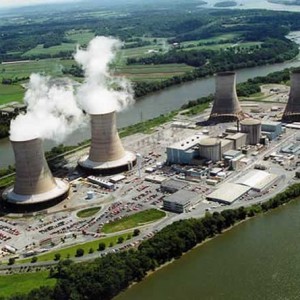Francis Hollande, France’s President vowed to reduce his country’s dependence on nuclear power in his 2012 presidential campaign. But after he was elected, many critics, including Greenpeace France were doubtful that Hollande will fulfil his campaign promise.
In 2012, Hollande renewed campaign promises that swept him to power to have his country’s reliance on nuclear energy reduced to 50 per cent by 2025. At that time, the current dependency level of France on nuclear power is around 75 per cent.
That move sent a message that the government would like to bring itself into closer consensus with several European nations, such as Germany and Italy which have plans to decrease their dependency on nuclear power considerably.
The opposition cynical about Hollande’s proposed nuclear reforms
The opposition block is currently cynical about the President’s pronouncements. “Nothing in the law guarantees that Hollande’s promise to lower the proportion of nuclear to 50 per cent in 2025 will be kept,” wrote Greenpeace France in a statement on their website.
“Politicians haven’t provided any means to shake off the shackles of nuclear,” the statement added. However, based on recent development in the halls of France’s government, there may be a little light shining through the tunnel.
Recently, the country’s lower house of parliament adopted a measure that will result in France’s capacity of nuclear energy reduced to 50 per cent by 2025. This ambitious scheme will need a major overhaul in France’s energy infrastructure and efficiency measures for the following decade.
The current state of nuclear in France
At present, 75 per cent of the country’s electricity is being supplied by 56 nuclear reactors.
France started its love affair with nuclear after the ‘oil shock’ that it experienced during the 1970s. At that time, OPEC jacked up oil prices four times as a response to a number of Middle East political conflicts.
Without access to coal, oil and gas, France had to go nuclear in its effort to achieve energy independence. France’s motto then was: “No oil, no gas, no choice.”
Currently, the second-largest producer of nuclear energy in the world is France. It is only second to the United States. However, many of the nuclear plants in the country are aging. In fact, after a recent UN Climate Summit, France is now one of the leading countries that feel the pressure of shifting to clean energy.
France took 15 years to build and develop its nuclear capacity. It is tragic that it is now feeling the heat of reducing its nuclear power in a span of 10 years. Now, it is virtually forced to adapt a new scheme – to build and develop its renewable energy capacity to 40 per cent by 2025.
In 2012, Hollande stated that the lowering of France’s nuclear dependence dovetailed with pledges from Japan to shut down its nuclear reactors by 2040. However, there are certain loopholes in Japan’s plan that will allow it to operate nuclear reactors beyond the 2040 benchmark.
Meanwhile, many pro-nuclear observers have doubted France’s decision to cut back on nuclear energy. “These people will be judged in 2080 for acting in their own interest instead of that of the planet,” said Francois Perchet, a former employee of the French utility EDF and a technical adviser at the World Nuclear University.

